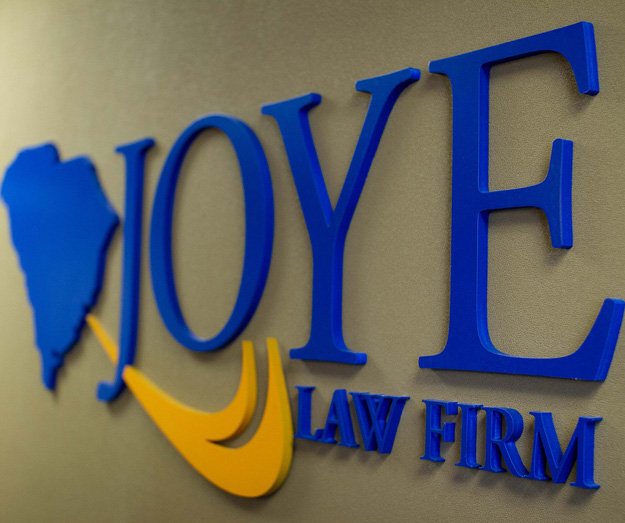
A new study says 300,000 truck drivers in the U.S. would be taken off of the road if their hair follicles were tested for drug use instead of their urine.
The FMCSA, which regulates the U.S. trucking industry, requires frequent driver drug tests, which consist of urinalysis. Many trucking companies use hair drug screens, a more stringent test.
The study found that existing urine testing is not as reliable as it should be and “is often invalid,” a report in CDL Life says.
The study was conducted by Dr. M. Douglas Voss, professor of Logistics and Supply Chain Management at the University of Central Arkansas; and Dr. Joseph D. Cangelosi, Jr., a Professor of Marketing at the University of Central Arkansas, whose research focuses on statistical analysis. Their research was requested and financially supported by the Alliance for Driver Safety and Security, aka the Trucking Alliance, which lobbies for stricter trucking industry regulations.
More than 3.5 million people work as truck drivers in America, according to the U.S. Census Bureau. The study, therefore, implicates about 8.5% of truckers on the road in South Carolina and across the country on a given day.
About the Research and the Results of the Study
The University of Central Arkansas (UCA) study cites several other studies that highlight the possibility that current federally accepted urinalysis is insufficient to identify drivers who may abuse substances that degrade their driving performance.
For example, it says, urine tests generally can detect drug use from as much as 2-3 days prior to the test. “This means truck drivers could refrain from drug use for 3 days, pass a scheduled pre-employment urine test, then begin driving and using drugs again,” the authors write.
The authors cite unannounced urine drug screens of commercial truck drivers during roadside and port of entry inspections by Oregon enforcement agencies in 1998. The unannounced nature of these tests negated drivers’ ability to prepare for the test. They found that 21% of the samples tested positive for one or more substances, including stimulants, cannabinoids, and alcohol.
This shows “the possibility that current federally accepted urinalysis is insufficient to deter and catch drivers who may abuse substances that degrade their driving performance.” It says many carriers, including Schneider, Knight-Swift Transportation, J.B. Hunt Transport, Werner Enterprises, and Maverick USA, use more stringent hair drug tests to help ensure driver sobriety.
When the Trucking Alliance compared pass/fail rates for urine and hair drug screens using 151,662 paired pre-employment urine and hair drug test results from 15 different trucking companies, their results indicated that 949 (0.6%) applicants failed the urine test while 12,824 (8.5%) failed or refused the hair test.
“The Trucking Alliance extrapolated their results over a population of 3.5 million U.S. truck drivers and claimed that, if their results were generalized across the U.S. driver population, almost 300,000 current commercial truck drivers would not be on the road if forced to pass a hair test, the researchers write.
The UCA researchers demonstrated that the Trucking Alliance data could be generalized to the broader U.S. driver population.
In 2015, President Barack Obama signed a law requiring the DOT and other federal agencies to put together comprehensive hair testing guidelines by December 2016. But the guidelines are still awaiting federal approval, a process that could take another three years, according to industry experts cited by Freight Waves in June 2019.
Current Processes & Procedures for Drug Testing Truck Drivers
 Federal Motor Carrier Safety Administration (FMCSA) rules require licensed commercial truck drivers to undergo pre-employment, random, and post-accident alcohol and drug testing. CMV drivers are subject to random testing even when at home in an off-duty status.
Federal Motor Carrier Safety Administration (FMCSA) rules require licensed commercial truck drivers to undergo pre-employment, random, and post-accident alcohol and drug testing. CMV drivers are subject to random testing even when at home in an off-duty status.
Once an employer has notified a driver of required random testing, the driver must report to a testing location for a random drug or alcohol test. Supervisors also may compel drivers to submit to testing if they exhibit signs of drug or alcohol abuse. Reasonable suspicion is based on observations of appearance, behavior, speech, or body odors of a driver.
The Department of Transportation (DOT), which oversees FMCSA, requires a five-panel test for controlled substances, including amphetamines and methamphetamines (including MDA, MDEA, and MDMA), cocaine, marijuana, opiates (opium and codeine derivatives), and phencyclidine (PCP).
A DOT publication for employers states that “DOT drug tests are conducted only using urine specimens.”
Trucking companies typically contract diagnostic laboratories to conduct urinalysis and medical professionals to review test results.
According to EHS Daily Advisor, a publication of BLR, a commercial compliance consultancy:
“Collectors at laboratories must comply with DOT procedures, including the completion of Chain of Custody Forms (CCFs). A collector verifies a driver’s identification and has the driver empty his or her pockets. The collector must confirm the driver has nothing that could dilute or adulterate a urine sample.
Employers also must have a designated employer representative, who receives analyses from the medical testing organization and is authorized to remove drivers from duty in the event of a positive test or refusal to submit to testing.
How a Charleston Truck Accident Lawyer Can Help in a Truck Accident
If you have been injured in a truck accident, a truck accident attorney can investigate the cause of your accident to determine who may be held responsible for the crash. This would include obtaining results of drug tests the truck driver had taken, as well as a variety of other evidence available after a serious truck crash.
At Joye Law Firm, our truck accident lawyers can determine what happened in a truck accident in South Carolina and what options are available to you to seek monetary compensation. Call Joye Law Firm now at 877-941-1019 for a free consultation about your case to learn more.


































